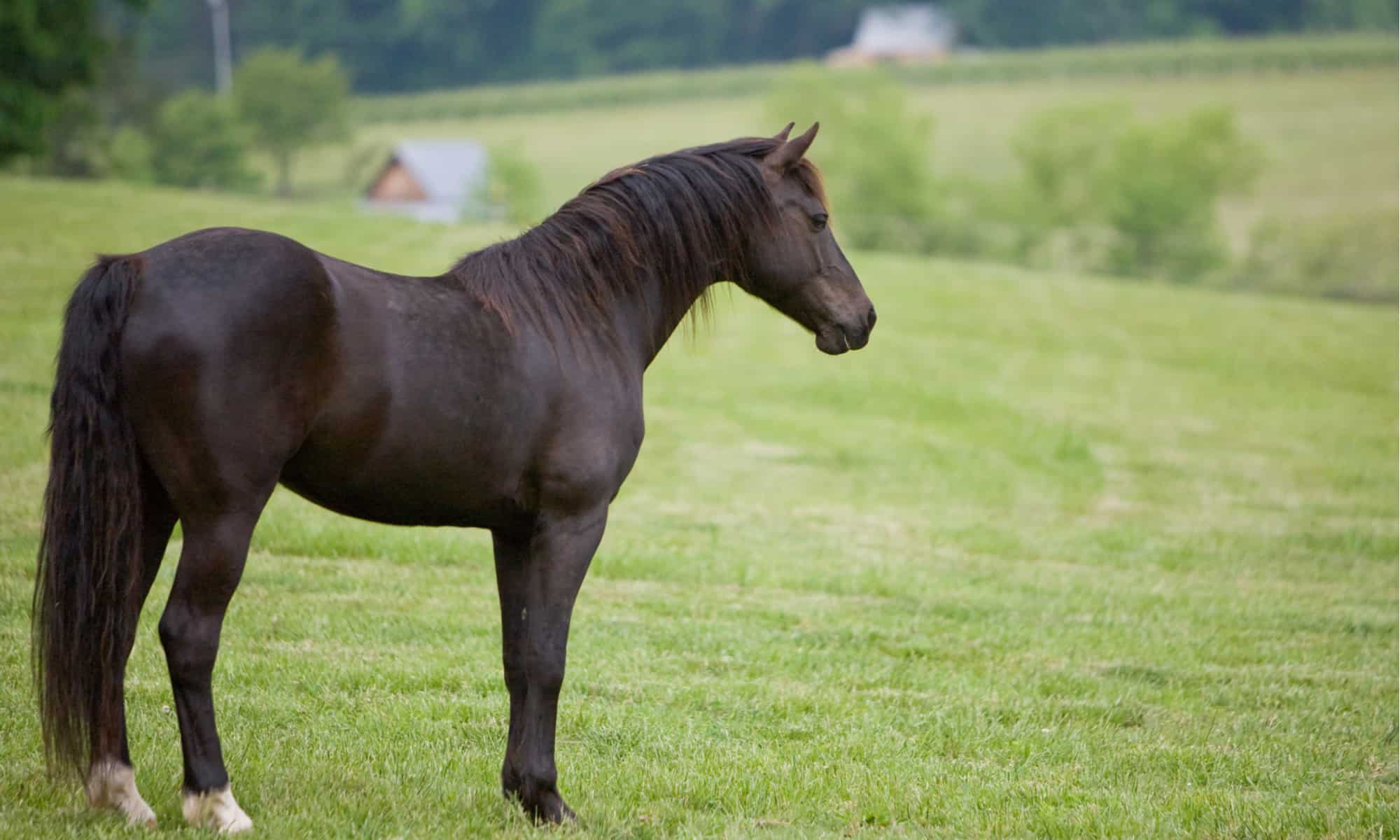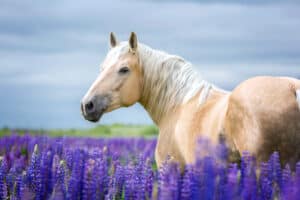The Tennessee Walking Horse is a breed from, you guessed it, Tennessee! Since 1790, the Tennessee Walking Horse has captured riders’ hearts around the world because of their lovely movements and friendly personality. If you have ever wanted to know anything about the Tennessee Walking Horse, consider this your ultimate guide to the gaited breed.
The Origin of the Tennessee Walking Horse
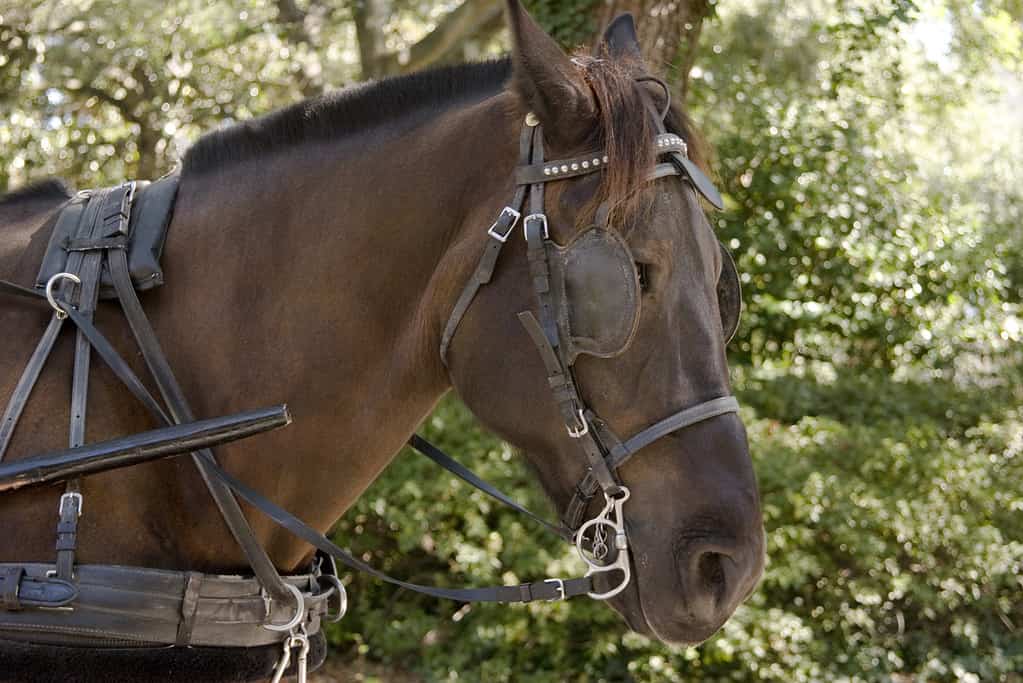
No matter what you choose to do with a Tennessee Walking
Horse
, you will have a great time!
©© Robert Simon/iStock via Getty Images
This horse breed is a cross between the Canadian Pacer and Narragansett Pacer mixed with the Spanish Mustangs of the late 18th century. These breeds were often used for driving because of their power.
Over time, Morgans, Standardbreds, Saddlebreds, and Thoroughbreds made their way into the bloodline. The Tennessee Walking Horse is bred for its rideability and good-natured attitude.
The Gaited Gene
Tennessee Walking Horses are a gaited breed. They have a special gene that offers a smoother ride. The Paso Fino is another breed with this gene that naturally gave them distinct, show-stopping movement. The Tennesee Walking Horse’s gait is called the “running walk.” Reaching speeds of up to eight miles per hour, it’s both efficient and smooth.
Horse Soring
What’s not smooth is horse soring, the inhumane practice of purposefully inflicting pain to produce exaggerated gaits in breeds such as the Tennessee Walking Horse. They are locked away in a stall with chemicals wrapped over their legs. This practice is banned in North America, but still prevalent in places like Tennessee and Kentucky.
Tennessee Pacer, Tennessee Walker, or Tennessee Walking Horse?
You might have heard the Tennessee Walking Horse being called the Tennessee Walker. You might also see it written as a TWH. This is the same breed, there are just different ways to say it. In fact, this horse was originally known as a Tennessee Pacer!
The horse world is full of acronyms, different languages, and confusion about common questions — like what’s a breed versus a color. That’s why it’s always best to get your information from trusted sources.
Characteristics of the Tennessee Walking Horse
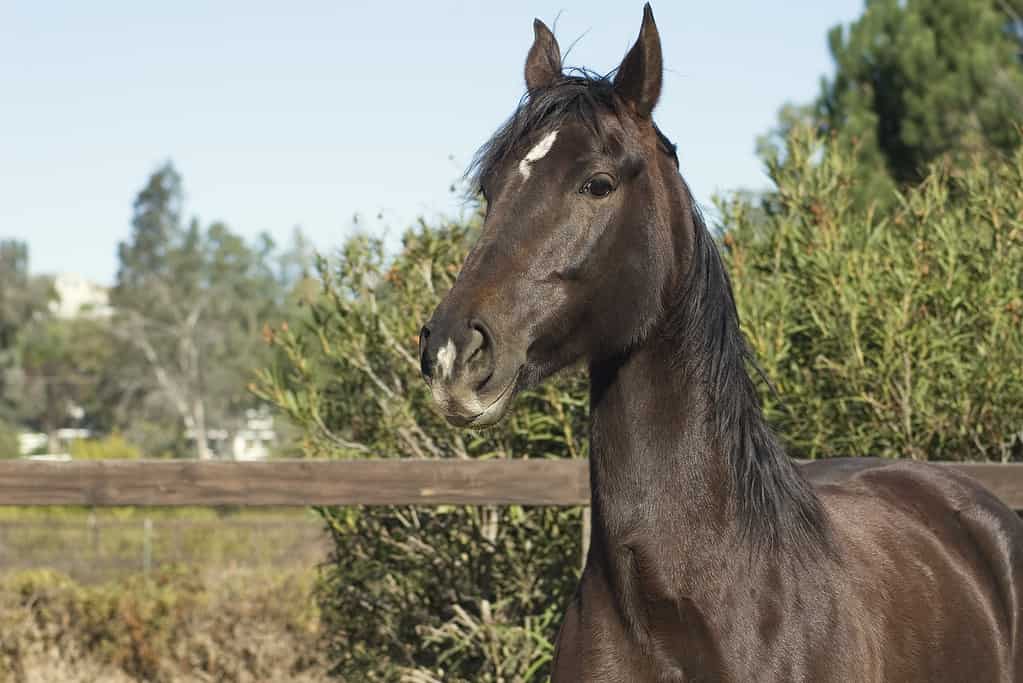
This breed is docile, fun to ride, and a flashy mover.
©© Deborah Cheramie/iStock via Getty Images
The Tennessee Walking Horse is a wonderful pleasure-riding mount. The breed isn’t high-strung, so their calm disposition means they are a fun horse for riders of all levels. This is what makes them one of the most popular horse breeds in North America.
But before we talk about what makes them so special to own, let’s go over the breed standard colors and the height of a typical Tennessee Walking Horse.
Common Tennessee Walking Horse Colors
The Tennessee Walking Horse Breeders’ & Exhibitors’ Association (TWHBEA) accepts many colors such as black, bay, brown, chestnut/sorrel, palomino, cremello, buckskin perlino, and different variations of champagne. This breed can also have patterns, dilutions, and modifiers! There is no Tennessee Walking Horse that looks exactly like the other.
Tennessee Walking Horse Height and Weight
The average height of a Tennessee Walking Horse is 14.3 to 17 hands high. They weigh between 900 to 1,200 pounds on average. They are a fairly tall breed yet have a slim build that helps them glide across the ground.
Top Traits of the Tennessee Walking Horse
This breed is most known for its flashy movements thanks to their gaited gene. They have a friendly disposition and are easy to handle, whether you’re riding or driving them. Their good-natured temperament makes them a great horse for beginner riders, but their spirited movements can also help you win in the show ring. Tennesee Walking Horses are an all-around versatile breed.
Tennessee Walking Horse Breed Guide: Suitable Uses
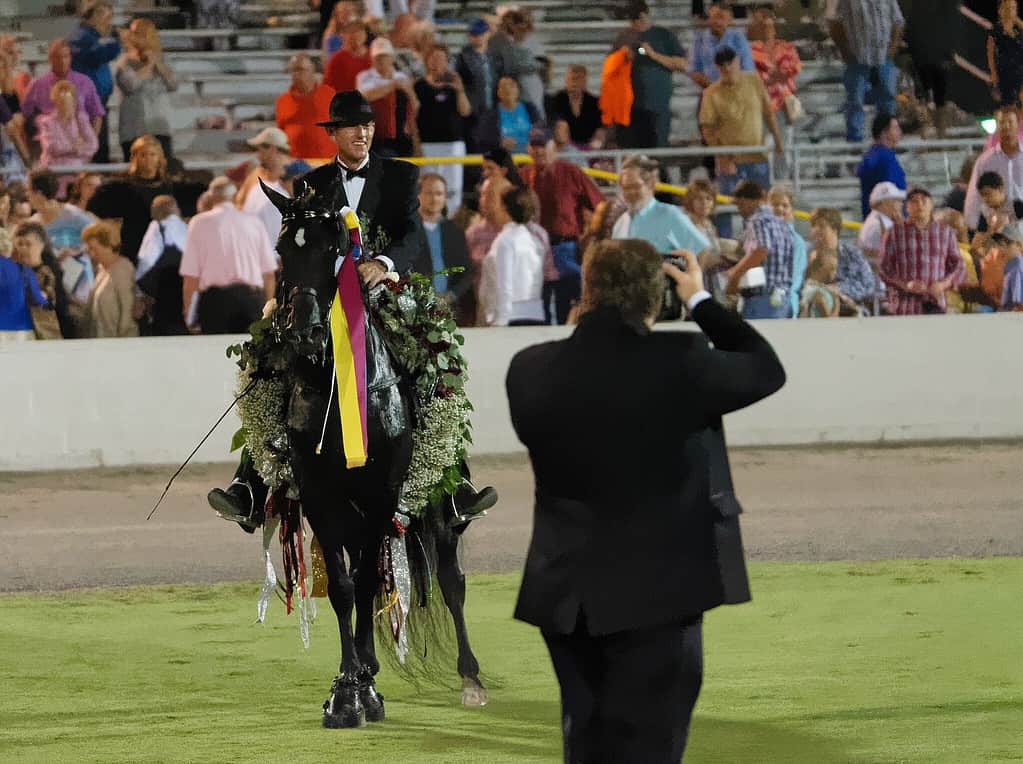
You can compete in a variety of disciplines with a Tennessee Walking Horse because they are an adaptable and willing breed.
The Tennessee Walking Horse is an adaptable breed. They are commonly used in a variety of different ways such as for dressage, pleasure driving, trail riding, and even light farm work. This is your guide to the Tennesse Walking Horse’s uses as a gaited breed.
Dressage
Flashy movements and smooth gaits make the Tennessee Walking Horse an obvious choice for dressage. Their trot is comfortable and they have a beautiful rocking-chair canter. They also excel in this rigorous equestrian sport because of their sensible temperament and elegant presence in the ring.
Pleasure Driving
While Tennessee Walking Horses are a common dressage mount, this breed is just as naturally suited for the equestrian sport of pleasure driving. They are strong yet supple, plus their smooth pace makes riding in the carriage or cart behind them a pleasurable experience.
Trail Riding
That same pleasure is extended when you choose to ride a Tennessee Walking Horse on the trail. These horses are wonderful to ride across any distance, but especially long ones, because of their smooth gait. Plus, they are a reliable breed that isn’t high-strung or spooky.
Light Cattle Work
Their bombproof nature is also what makes the Tennessee Walking Horse great for light farm work. While this breed might not be the most popular choice, many ranch owners say these horses love to move cows. They are also adept at driving, which comes in handy for plowing fields.
The Health and Diet of a Tennessee Walking Horse
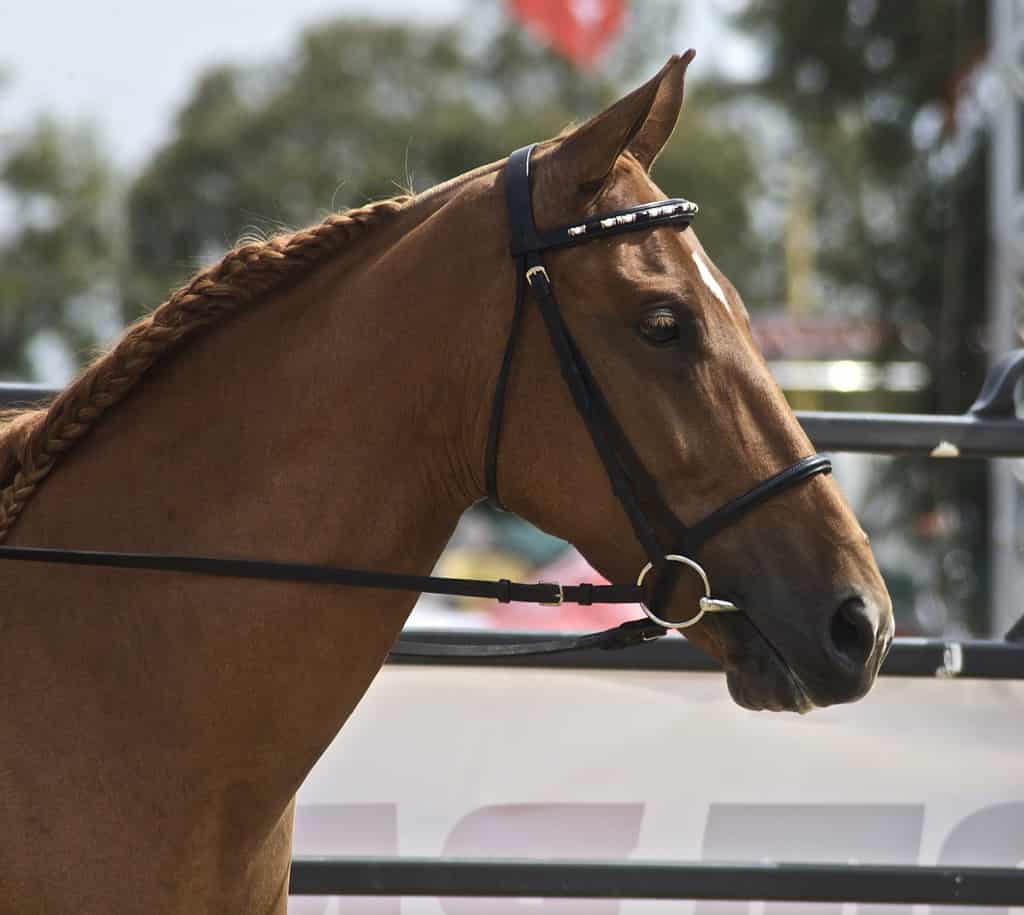
Tennessee Walking Horses are a healthy breed, with a lifespan of around 30 years.
You can expect a Tennessee Walking Horse to live between 28 and 33 years. They are generally easy keepers and kind pasture mates.
Health
Tennessee Walking Horses are a generally healthy breed, but they may develop some genetic health issues over time. Here are 5 to look out for:
- Congenital stationary night blindness (CSNB)
- Cervical vertebral compressive myelopathy (CVCM)
- Polysaccharide Storage Myopathy type 1 (PSSM1)
- Metabolic syndrome
- Hyperkalemic periodic paralysis
If you show or compete with your Tennessee Walking Horse, they are at an increased risk of even more conditions. They can develop degenerative joint disease, shipping fever, and gastric ulcers that affect performance and quality of life.
Diet and Nutrition
If you own (or want to own) a Tennessee Walking Horse, you might wonder what they eat. Like other horses, they require between 1% and 2% of their body fat in grass, hay, or grain per day.
That percentage increases if you use your Tennessee Walker Horse for daily farm work, ride often, or compete frequently. That’s because a working breed or performance horse used in competitions will need more, higher quality feed than one used for pleasure riding. And since this breed averages around 1,000 pounds, your feed bill can add up quickly!
The Cost of a Tennessee Walking Horse in 2023: Purchase Price
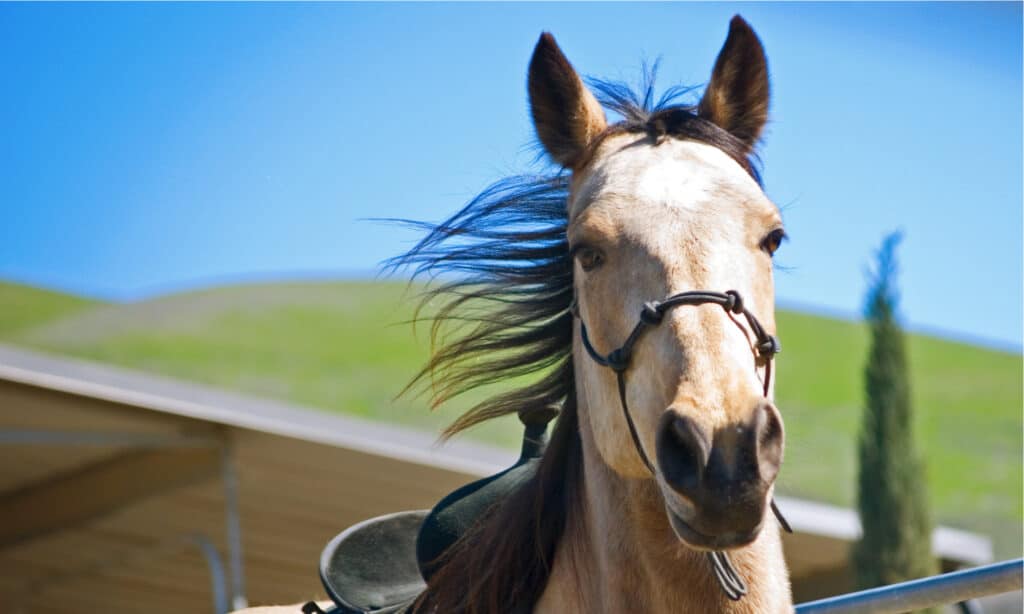
Tennessee Walking Horses are a popular breed because they are friendly, docile, and have stunning gaits.
©Horse Crazy/Shutterstock.com
As with any horse breed, the cost of a Tennessee Walking Horse depends on their age, pedigree, and experience level. A pleasure-riding horse will cost much less than a show horse, so your priorities for buying largely dictate the price.
You can expect to pay around $3,000 for a rideable Tennessee Walking Horse and closer to $10,000 for a registered horse. They are a popular breed currently, so the market and time you buy will also dictate the exact price you pay for your Tennessee Walking Horse.
The Pros and Cons of Tennessee Walking Horses
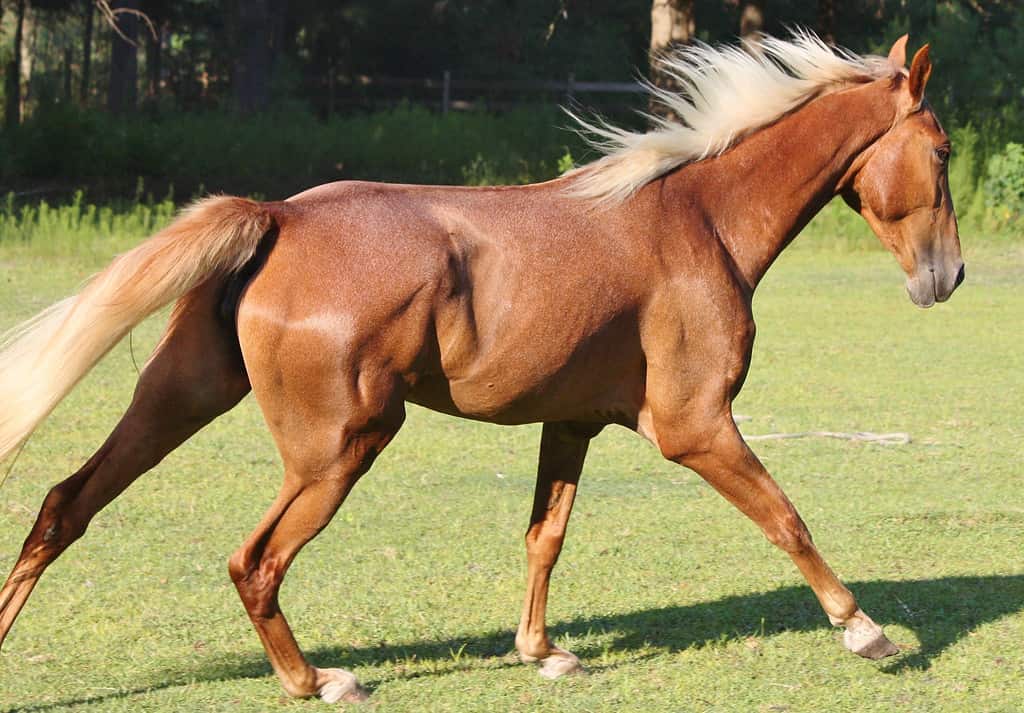
The Tennessee Walking Horse is a wonderful companion, riding partner, or top-level competitor.
©aleigha blakley/Shutterstock.com
The Tennessee Walking Horse is an incredibly popular breed, and for good reason. They are sensible, calm, and easy to train. They are also incredibly fun to ride! But there have to be some cons too, right? Let’s find out.
| Pros | Cons |
|---|---|
| Smooth gaits | Predisposed to multiple genetic diseases |
| Flashy movements | Sored horses can be traumatized for life |
| Friendly | Registered horses are expensive |
| Versatile | |
| Suitable for riders of any level |
With naturally beautiful movements and a lovely attitude to match, It’s clear to see that this breed is a catch! Now that you know all about the Tennessee Walking Horse, what breed guide should we cover next?
Thank you for reading! Have some feedback for us? Contact the AZ Animals editorial team.

